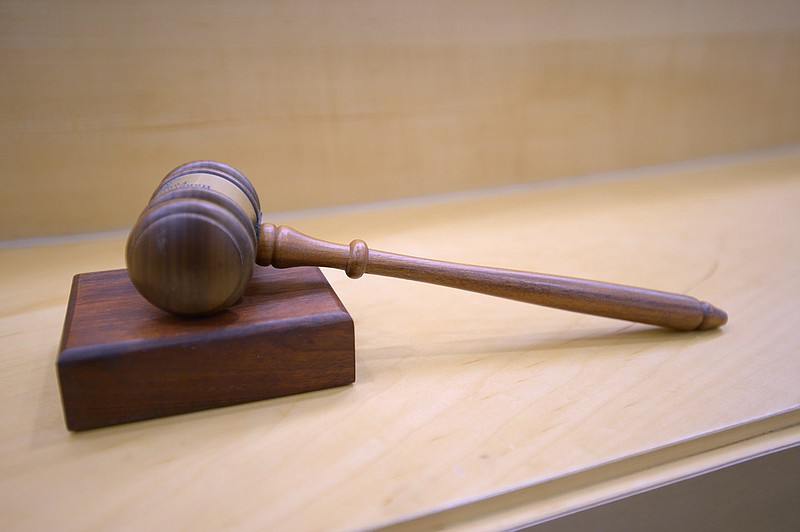A Memphis medical device salesman who pleaded guilty in federal court in 2019 to paying kickbacks to generate sales of expensive compounded prescription drugs in an insurance fraud scheme was sentenced to 20 months in federal prison.
Bradley Fly, 36, of Germantown, Tenn., who appeared Thursday before U.S. District Judge Brian Miller, was accused of generating the prescriptions on behalf of Brad Duke, who pleaded guilty to conspiring to violate the federal Anti-Kickback Statute in October 2018. Prosecutors said Fly earned 35% of what insurers paid as commission and when he learned that Tricare, the military health insurer, would pay tens of thousands of dollars per month per patient for compounded drugs, he concentrated his efforts on generating prescriptions for those beneficiaries covered by Tricare.
Assistant U.S. Attorney Alex Morgan wrote in a sentencing memorandum that Fly, like Duke, recruited others to supply Tricare beneficiaries and got prescribers to sign prescriptions without regard to medical necessity or consulting patients, with most of the prescriptions coming from one of two doctors, identified only as "J.K." and "J.W." in court documents. In the memorandum, Morgan said that from August 2014 through December 2014, 113 of 114 prescriptions generated by Fly came from J.K. and J.W.
According to the sentencing memo, the "Tricare payout on J.K. and J.W. prescriptions for unseen beneficiaries would eventually top $2.3 million, earning [Fly] over $800,000 in commission."
As Fly's attorneys, who asked that their client be sentenced to probation, squared off against Morgan regarding how much Fly actually knew about the conspiracy and how severe his penalty should be, Miller held up a thick sheaf of papers that he said were over 300 pages of briefs that had been filed by both sides attempting to prove or disprove the extent of Fly's involvement.
"I don't want to put on a trial today considering that Mr. Fly has already pled guilty," Miller said. "The guideline range, I think, is 18 months to 24 months and I think that's where we'll end up... We're going to deal with what we have in front of us and we'll do the best we can with the information we have."
Even so, the attorneys, Morgan and Fly's lawyers, Lawrence Laurenzi and Zachary Busey, both of Memphis, wrangled for more than 2½ hours over numerous claims in Fly's presentence report prepared by the court's pretrial services office.
Laurenzi said that the objections he and Busey had regarded what he characterized as "uncharged conduct" contained in the presentencing report.
"The conduct we're facing is not what we pled to," he said, "and we would ask the court not to consider it."
"I think Mr. Morgan is responding to the request for a variance down to probation," Miller said. "What he wants to do is put into context what actually happened so that I don't have sympathy for Mr. Fly, or that I don't have such significant sympathy for him that I send him home on probation."
After witness testimony from one of the people Fly recruited to find Tricare recipients to sign up from his Marine Reserve unit and from a special agent of the U.S. Department of Health and Human Services who outlined the extent of the investigation, Miller overruled all of the defense objections to the presentence report.
"None of the evidence that was presented at this hearing impacts what the sentence is going to be, but it does impact what is going into the presentence report," Miller said. "I think the presentence report should be adopted with those objections noted."
Discussion continued regarding the amount of loss to the government and comparisons of sentences in similar cases in the Eastern District of Arkansas and elsewhere, finally settling on Busey's contention that the 21-month delay in sentencing because of the coronavirus pandemic had upended Fly's life and had punished him sufficiently for the offense.
"Any lengthy sentence is just going to push him further backward," Busey said.
Morgan then said that, rather than the pandemic, much of the delay had resulted from defense motions, which brought an objection from Busey and further arguing as attorneys began talking over one another until Miller signaled for the arguments to stop.
"Each side has been heard and it's time for me to announce the sentence now," the judge said, noting that although Fly was a first-time offender, the amount of the offense called for a harsher sentence than probation.
"Do they get one freebie?" he asked. "Looking at this, I don't think I can go there."
As Miller announced the sentence, Fly's head dropped to the table for several minutes, then he cradled his head in his hands as Laurenzi reached over and comforted him.
In addition to 20 months in prison, Miller sentenced Fly to three years supervised release and said he would announce what Fly would be required to forfeit in assets within a few days. According to the plea deal, Fly agreed to a money judgment not to exceed $785, 594, representative of the amount of proceeds he gained from the offense.
